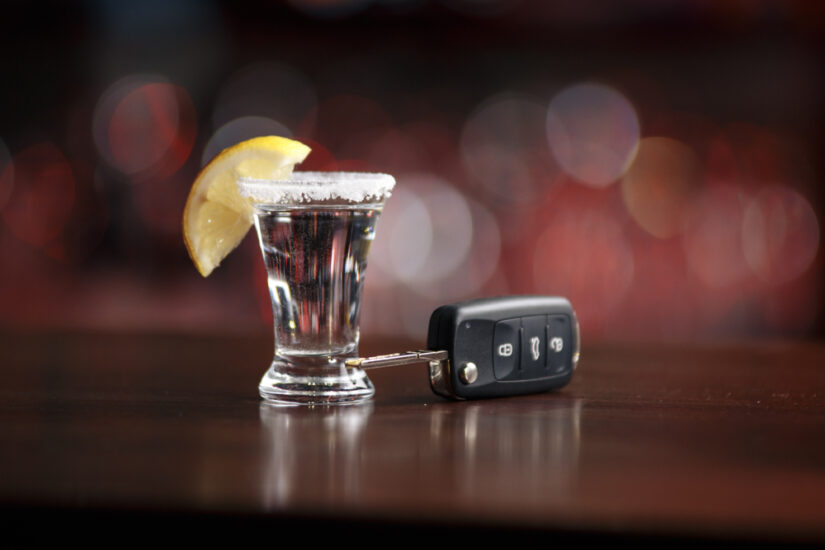
September 11, 2024
Introduction to DWI Probation in Texas
Every year, thousands of Texans face the daunting reality of a DWI conviction. For many, probation offers a lifeline—a chance to avoid jail time while rebuilding their lives. Understanding the intricacies of DWI probation is crucial for navigating this challenging period successfully.
Governed by Chapter 42A of the Texas Code of Criminal Procedure, DWI probation, also known as community supervision, includes strict requirements designed to monitor and support rehabilitation. First-time offenders may even qualify for deferred adjudication, which could ultimately lead to a dismissal of the charges upon successful completion of all terms and conditions.
Who Qualifies for DWI Probation?
Eligibility for DWI probation in Texas depends on several factors. Typically, first-time offenders and individuals with low-severity offenses are more likely to qualify. However, the court considers a range of criteria when determining eligibility:
- Severity of Offense: Probation is more likely for those convicted of less severe DWI offenses.
- Criminal Record: A clean or minimal criminal record increases eligibility.
- Community Risk: Judges assess the risk the individual poses to the community.
- Willingness to Comply: Demonstrating a commitment to adhere to probation terms is crucial.
For more detailed information, you can refer to the Texas Penal Code and specific county regulations on community supervision.
Mandatory Conditions of DWI Probation
When it comes to mandatory conditions of DWI probation in Texas, there are several key requirements that individuals must adhere to. These conditions are put in place not only as punitive measures but also to encourage rehabilitation and prevent future offenses. Here are the fundamental mandatory conditions:
- Educational Programs: Completion of a state-approved DWI education course is mandatory.
- Community Service: Courts often require offenders to complete a set number of community service hours.
- Financial Obligations: Paying fines, supervision fees, and court costs is non-negotiable.
- Substance Monitoring: Regular alcohol and drug tests help ensure compliance.
- Ignition Interlock: Some offenders may need to install a device to prevent driving under the influence.
- Probation Officer Meetings: Monthly check-ins are essential to monitor progress.
These conditions are designed to ensure compliance and reduce the likelihood of reoffending.
For more detailed information about the requirements of DWI probation in Texas, you can refer to the Chapter 42A of the Texas Code of Criminal Procedure as described on the official Texas Legislature website.
Special Conditions You Might Face
While on DWI probation in Texas, you may encounter special conditions tailored specifically to your case. These conditions can be more stringent and may include, but are not limited to:
- Attending a Court-Approved DWI Education Program
- Installing an Ignition Interlock Device on Your Vehicle
- Undergoing Regular Alcohol or Drug Testing
- Performing Additional Community Service Hours
- Compliance with Curfews or Electronic Monitoring
For instance, if your DWI involved a minor passenger, the court may impose stricter conditions, such as mandatory parenting classes. These additional requirements aim to prevent repeat offenses and ensure public safety.
For a deeper understanding of these conditions, you can refer to Texas Department of Public Safety.

What Happens During the Probation Period?
During your DWI probation period in Texas, you’ll be required to adhere strictly to certain conditions set forth by the court. Imagine you’ve just begun your probation. Each month, you’ll meet with your probation officer, attend required courses, and submit to random drug tests. Failing to adhere to any of these requirements could lead to severe consequences, including probation revocation or additional penalties.
How Long Does DWI Probation Typically Last?
In Texas, the duration of DWI probation can vary, but generally, it ranges from six months to two years for first-time offenders. However, the specific length of probation often depends on factors such as the severity of the offense and the individual’s prior criminal history. Repeat offenders or those with aggravating factors like high blood alcohol content (BAC) could face longer terms. For more detailed information, you can visit the Texas DWI resource site.
Consequences of Violating DWI Probation
Violating your DWI probation can result in immediate consequences, including extended probation, additional fines, or even jail time. For example, missing a scheduled meeting with your probation officer or failing a drug test could lead to severe penalties. It’s crucial to adhere strictly to your probation terms to avoid these serious repercussions.
Common Violations and Their Impact
During your probation period, it’s important to comply with all the stipulated conditions to avoid severe consequences. Common violations that could undermine your probation include:
- Failing to Report to Your Probation Officer: Missing scheduled meetings can lead to serious repercussions.
- Leaving the County Without Permission: Unauthorized travel can be viewed as an attempt to evade supervision.
- Issues with the Ignition Interlock Device: Malfunctions or deliberately avoiding usage can result in penalties.
For example, if your ignition interlock device registers alcohol, even if it was a technical error, you could face additional penalties. Always ensure that the device is functioning correctly and report any issues immediately.
Legal Assistance: Your Best Ally if Probation is Violated
If you find yourself in violation of your DWI probation, seeking professional legal assistance immediately can make a significant difference in how your case is handled. Prompt action is crucial. Consequences for violations can range from court admonishments to more severe penalties like incarceration.
The experienced attorneys at the Napier Law Firm in Houston can help you navigate the complex legal landscape and explore your options, whether it’s negotiating amended probation terms or defending against probation revocation.
Don’t wait—if you’re facing DWI probation challenges, contact the Napier Law Firm today. Their experienced team is ready to fight for your rights and help you achieve the best possible outcome.